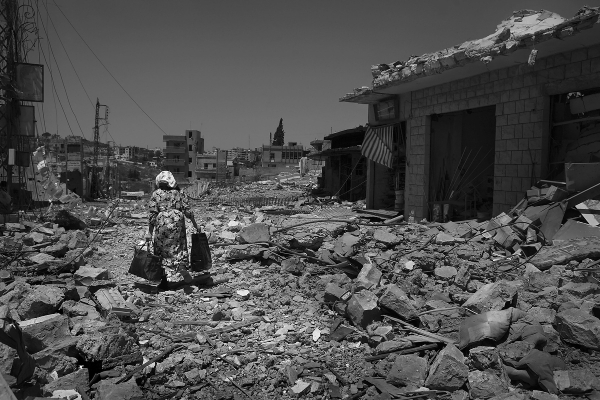Almost twenty years have passed since the protection of civilians was placed on the UN agenda. Despite this occurrence, the picture outlined by the UN Secretary-General in his Annual Report (462/2018) is particularly discouraging, as “civilian populations continue to bear the brunt of armed conflicts across the globe”.
Children, women and men are routinely killed or injured due to deliberate or indiscriminate attacks, that are regularly conducted in densely populated areas and frequently involve the use of explosive weapons. Civilian objects, medical facilities and essential infrastructure are consistently damaged or destroyed in targeted operations carried out on a daily basis in conflict-affected countries. Residential and other urban areas are contaminated with lethal explosive remnants of war, which prevent access to food supplies, health care and other essential services. Persistent attacks against humanitarian personnel, and assiduous bureaucratic impediments in the conduct of humanitarian actions, jeopardize the ability of affected populations to meet their basic needs and increase the risk of diseases and food insecurity.
Furthermore, concerns persist over the presence of non-State armed groups in urban settings. These groups avoid engaging their enemies on open battlefields, opting instead to intermingle with the civilian population, and repeatedly fail to comply with their fundamental obligations under international law.
Consequently, urban warfare, violent extremism, explosive attacks, and food insecurity force civilians to flee their homes and meet a perilous fate. In particular, it is reported that at the end of 2016 approximately 65 million people were displaced by conflict, a circumstance that made forced displacement the defining feature of war in 2017. Countless displaced civilians remain missing.
Aggravating this scenario is the employment of sexual violence as a method of warfare, terrorism, torture and repression. In most cases, such cruelty includes the targeting of victims on grounds of ethnic, religious or political affiliation. Additionally, children continue to be disproportionately affected by hostilities. Too often they are subjected to abduction, a tactic used for forcibly recruiting children and sexually exploiting them.
Against this backdrop, the UN Secretary-General, building upon the already numerous recommendations outlined in Report n. 414/2017, invites Member States to take additional steps to spare civilians and civilian objects from the effects of war. This goal can be achieved by promoting dialogue, inclusive peace processes and the rule of law. Taken together, these steps lead to sustainable solutions and prevent the outbreak, escalation or recurrence of conflict.
Harm mitigation can also be achieved by developing national policy frameworks establishing institutional authorities for the detection, analysis and response to allegations of civilian casualties, including the investigation and prosecution of serious violations of international law.
Enforcing respect for international law also requires changing the behaviour of non-State armed groups and enhancing their commitment to the mitigation of the civilian suffering. These goals can be accomplished through engagement in training activities and the development of good practices among the different actors involved.
Lastly, raising awareness and ensuring accountability are of paramount importance for the effective implementation of international humanitarian and human rights law. As the UN Secretary-General recalls, where national action is lacking or inefficient, greater recourse should be made to international or hybrid courts and mechanisms.
For more information, please visit:







